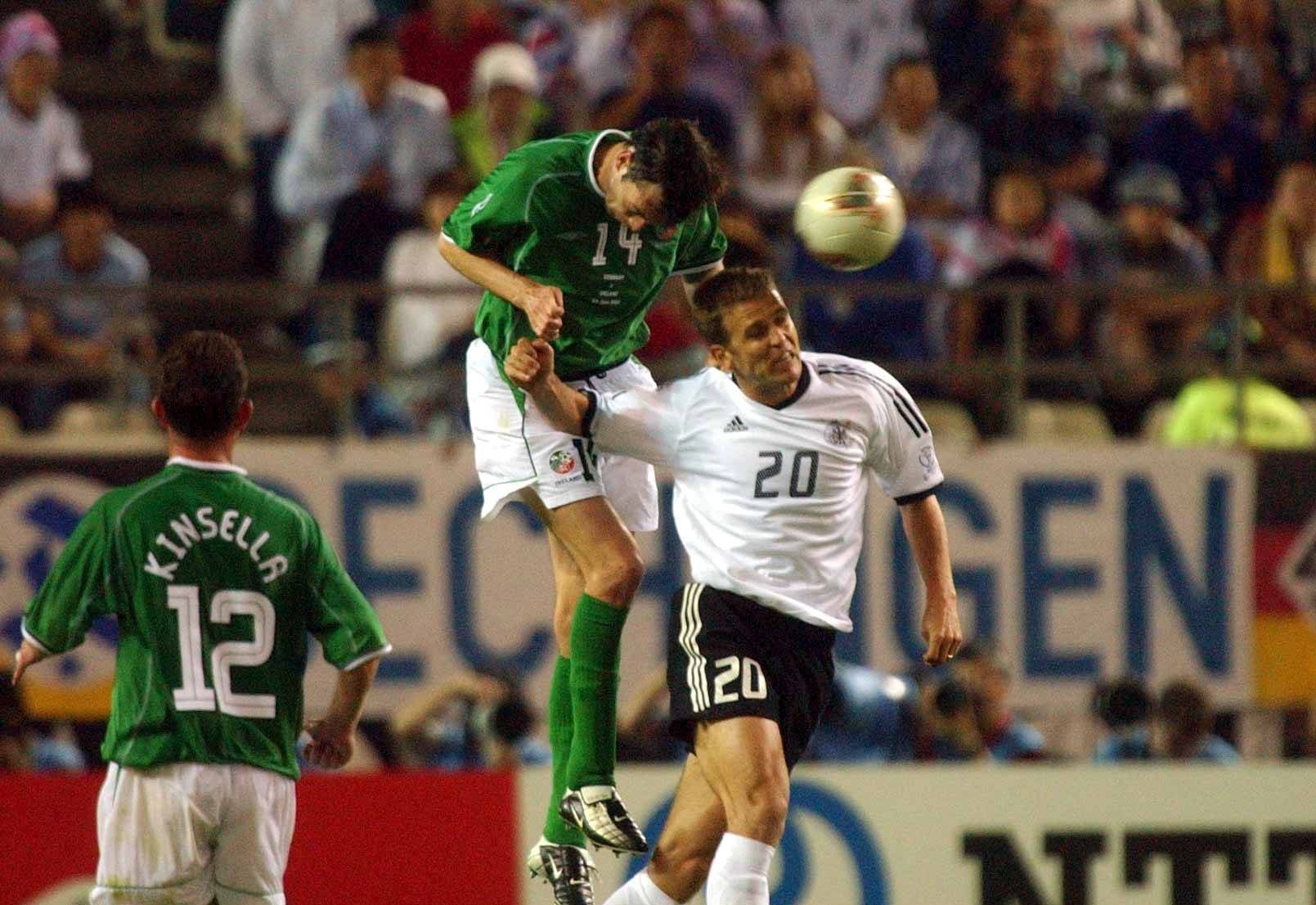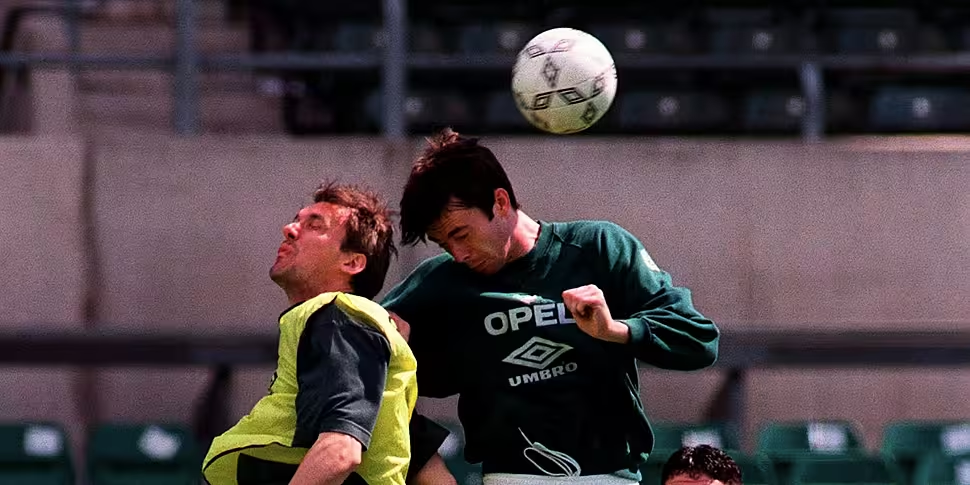In light of Tony Cascarino's revealing interview on the relationship between football and dementia aired on OTB AM earlier this week, former Irish international Gary Breen shared his own thoughts on what the research means in his life.
After a professional career that spanned the greater part of two decades, Gary Breen found it difficult listening to his former international teammate Tony Cascarino earlier this week.
Speaking on OTB AM about the intensified risks ex-footballers have of developing dementia later on in life, Cascarino, whose father is currently suffering with the condition, spoke to Breen's own concerns.
"It is a major worry, there's no doubt about it," Breen explained of the links between his former profession and the devastating disease. "From a personal point of view, when you hear that type of interview you do immediately think of what you have done as a player."
A centre-back throughout his career, heading the football was a fundamental aspect of Gary Breen's day-to-day life.
What's more, the former Premier League footballer did all that he could to ensure that he was as efficient as he could be in that department.
"I look back and as a young centre-half who wasn't particularly good in the air, I worked at it and worked at it and worked at it," he explained.
"I made myself dominant in the air against any player I played against at Premier League or international level. The reason I was able to do that is because of the amount of balls I headed every day in training.
"Now, we're talking about these lighter footballers which is right, but it is about the pace at which they're moving too. It would literally be a case sometimes where I would do sessions of heading maybe 20 or 30 balls and I would feel literally dizzy afterwards.
"When you're doing the heading and the balls are getting a little bit water-logged, you are coming off thinking that this can't be doing you any good. But it is just the way it was."
 5 June 2002; Gary Breen, Republic of Ireland, heads clear of Oliver Bierhoff, Germany. Picture credit: Sportsfile
5 June 2002; Gary Breen, Republic of Ireland, heads clear of Oliver Bierhoff, Germany. Picture credit: SportsfileLast year, the University of Glasgow released a landmark study which resulted in the Scottish FA banning heading in youth football below the age of 12.
The data, based on information from 7,676 former-footballers, found that:
- Footballers are three and a half times more likely to die from dementia and other similar conditions.
- They are five times more likely to suffer from Alzheimer’s disease.
- Four times more likely to experience motor-neurone disease.
- Have double the chance of developing Parkinson's disease.
"To hear these kinds of statistics and the research that's going into it, of course it is a major worry," Breen admitted.
Earlier this year, Chris Sutton explained to OTB Sports that he found himself in a similar situation to Cascarino and you can read what he had to say here.
Download the brand new OffTheBall App in the Play Store & App Store right now! We've got you covered!
Subscribe to OffTheBall's YouTube channel for more videos, like us on Facebook or follow us on Twitter for the latest sporting news and content.








